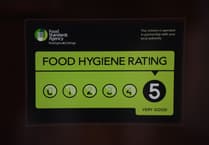There is so much to consider in any evaluation of the dire state of our schools that it is difficult to know exactly what issues are the most disturbing
In the recent Autumn Statement the Chancellor announced a £4.8 billion input into schools over the next two years. This seems a large sum but must be viewed in relation to years of underfunding, the high inflation rate and the ever increasing cost of energy.
All recent surveys of the teaching profession highlight the current general feeling of depression experienced by teaching staff. Morale is at an all-time low. The demands placed upon teachers are greater than they have ever been. Many are taking early retirement with the subsequent loss of experienced staff to guide new entrants to the profession. Recently a Devon teacher left to become a train driver to obtain better pay and a better life balance. Given the present strike action by railway unions this move is somewhat ironic and a sad reflection on current teacher perspectives on their quality of life.
Recruitment is now very difficult. Teaching is no longer an attractive proposition such that posts go unfilled. Pay remains a bone of contention falling way below inflation. Many pupils need extra help with their learning but the resources are not available to meet this growing demand. In recent years staff absence has become a major concern. Covid allied to stress has resulted in long periods of time when schools have been under staffed. Those in school have had to carry an extra burden.
With these problems it is not surprising that school performances are often rated below the required standard. Sadly our local Tavistock College has been graded inadequate by Ofsted. The report is critical of leadership, behaviour, bullying, and children not feeling safe. Teaching standards are reported to be variable. Trying to put these aspects of school life right in the current difficult times is something that will take time. Schools in such a position need to relate closely with the parents of pupils in a collaborative manner so that improvement can be achieved. This needs both parties to step up to the mark. Given the difficulty in recruitment, finding experienced staff to stead the ship is often impossible. There is a chronic shortage of experienced staff available, and those that are willing to venture back into the classroom are expensive.
Whilst it is easy to lay the blame for failure upon teachers it is also parents that need to be accountable. A bully is unlikely just to be objectionable in school but also out of school hours. Parents need to instil discipline at home such that teachers have less worry about such behaviour disrupting the learning environment.
Pupils today live in a modern society where social media seems to dominate their lives placing added pressures upon their mental health. Sadly this has had catastrophic outcomes for some young people. Social media interaction can be cruel leading to a growing number of mental health issues. Enough staff trained to deal with these problems is not always readily available. It is yet another problem for staff to tackle.
Sadly there is not easy quick fix to these growing problems in our schools. The change from teacher training courses to training in schools has not been a success. Teaching staff have enough to cope with without the additional responsibility for new entrants who may well need a considerable amount of time to make the grade. It is an option that has largely failed to enhance the profession. School governors, many of whom have little or no experience of current educational policy face an unenviable task of overseeing strategic school issues. Little wonder they are hard to recruit. A new long term properly funded programme for school education is yet to be forthcoming such that the crisis will continue as more teachers leave the profession.





Comments
This article has no comments yet. Be the first to leave a comment.